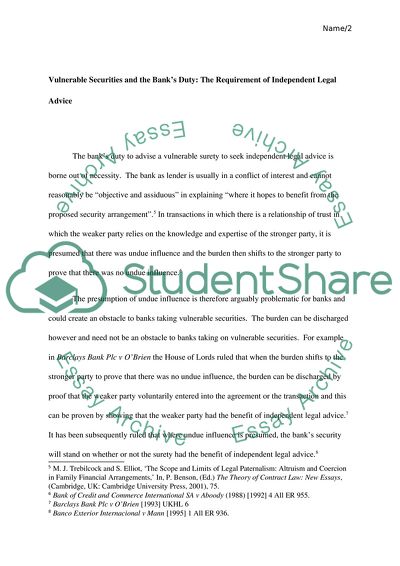Cite this document
(Banking Law Essay Example | Topics and Well Written Essays - 2500 words - 3, n.d.)
Banking Law Essay Example | Topics and Well Written Essays - 2500 words - 3. https://studentshare.org/law/1797064-banking-law
Banking Law Essay Example | Topics and Well Written Essays - 2500 words - 3. https://studentshare.org/law/1797064-banking-law
(Banking Law Essay Example | Topics and Well Written Essays - 2500 Words - 3)
Banking Law Essay Example | Topics and Well Written Essays - 2500 Words - 3. https://studentshare.org/law/1797064-banking-law.
Banking Law Essay Example | Topics and Well Written Essays - 2500 Words - 3. https://studentshare.org/law/1797064-banking-law.
“Banking Law Essay Example | Topics and Well Written Essays - 2500 Words - 3”. https://studentshare.org/law/1797064-banking-law.


